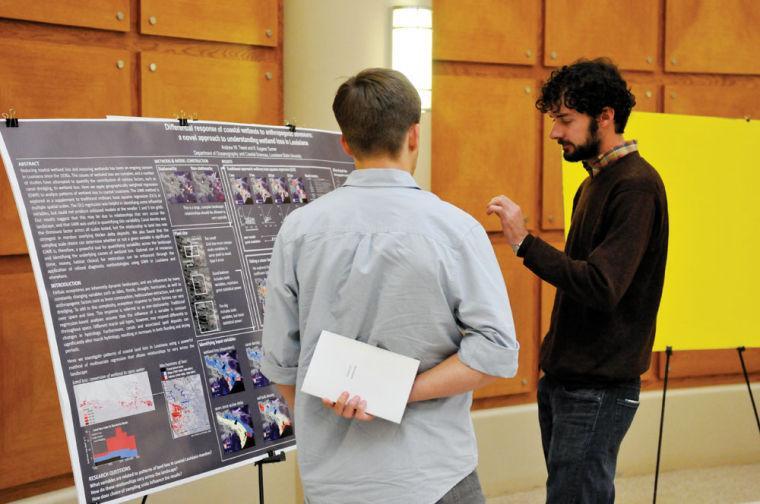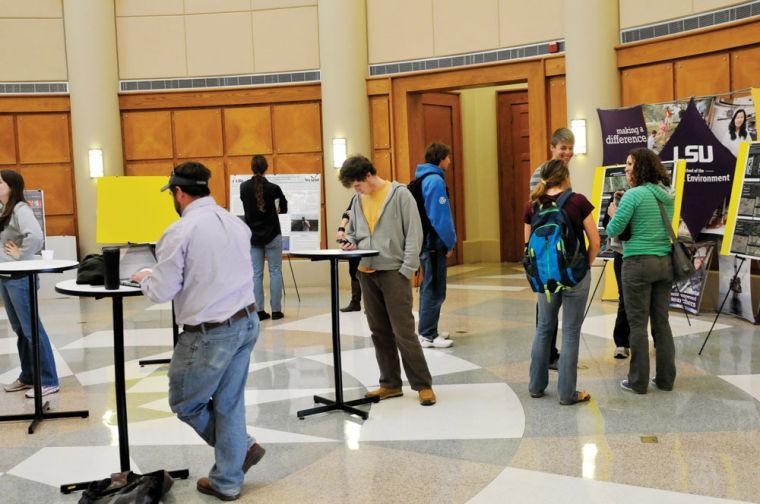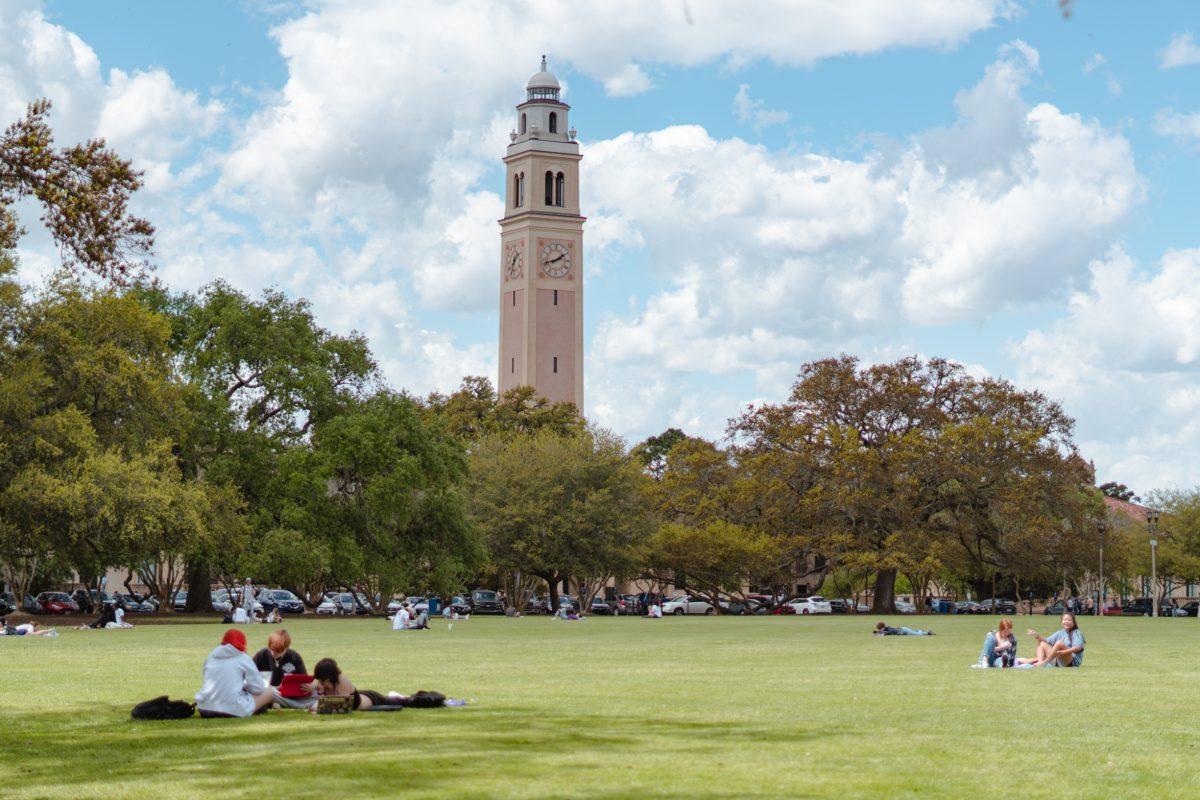The Student Wetland Society raised awareness for wetland problems and research efforts Friday at the third biennial Student Wetland Symposium.
All students were encouraged to attend the series of presentations to view the poster submissions from students of many disciplines, listen to speakers and network at lunch.
Oceanography and coastal science graduate student and chair of the Student Wetland Symposium planning committee Melissa Carle said the biennial deadline gives more opportunity for students to present research and to include graduate and undergraduate students.
Carle said she was excited for the showcase of the variety of wetlands research across campus. Students of any major could participate.
“We want to bring as many different perspectives as possible,” Carle said.
This year, design students submitted a poster with plans for Desoto Park in downtown Baton Rouge. The plan included highlighting ecological features “as a wetland waterfront park.”
Chang Liu, environmental science graduate student, presented a poster on microbiodegradation, or what specific microbes can do to clean pollution, particularly in oil spills.
The microbes are abundant, but because this is a relatively new field of research, not many have been studied in the wetlands, Liu said.
Director of Coastal Systems Ecology Ernst Peebles spoke on his Black Mangrove research and the importance of science and public policy coming together to protect the valuable ecosystem.
Because wetlands are an imperative tool for the Louisiana coast to protect itself against storms — and wetland loss can reduce that protection — he said Hurricane Katrina created a necessity to find out the cause and solution for the problem.
“Louisiana really woke up and started working on a comprehensive plan on managing the coast,” Peebles said.
Carle said wetlands research and sustainability often call for many disciplines to solve problems.
“One of the big challenges is how to bring the scientist and the politics together,” Carle said.
Peebles also explained the basics of the Restore Act, similar to Sen. Bill Nelson’s Act in Florida, that show a Gulf-wide plan to protect the coast.
Peebles said efforts of applied science to aid policy-making are even in place in Baton Rouge, like the Water Institute of the Gulf.
The Baton Rouge-based group focuses on researching different issues of Gulf water and informs those planning landscape of their findings, he said.
“The Water Institute is a hub that innovates other opportunities and partners with academia,” Peebles said.
Coastal environmental science senior Kristina Sebastian said although she did not submit a poster, she attended the event out of interest.
“It’s to create awareness about the wetlands and how important they are and how there is a need for restoration,” Sebastian said.
“One of the big challenges is how do you bring the scientist and the politics together.”







